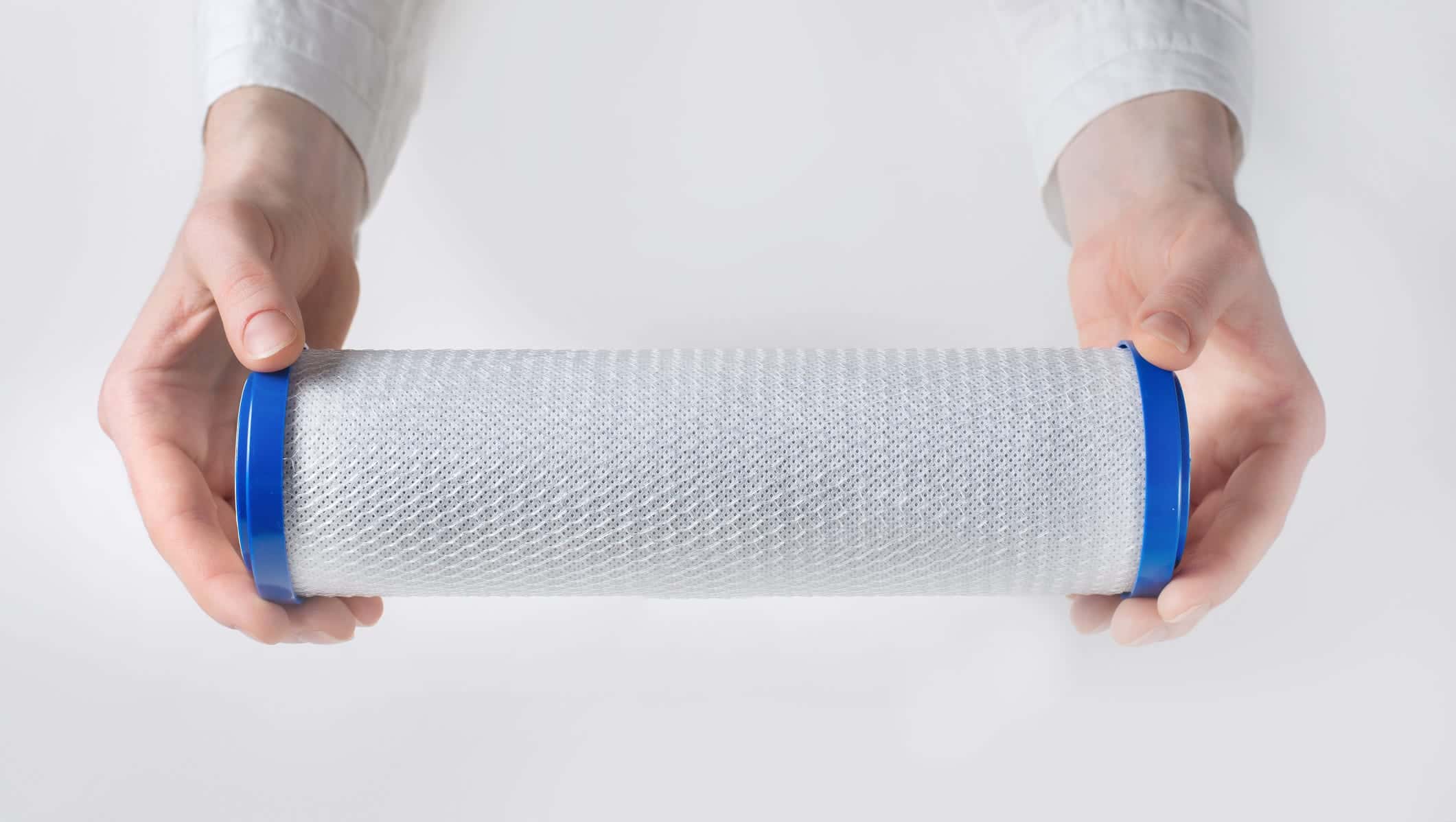Are you concerned about the presence of lead in your drinking water? If so, you may be wondering if a water filter is effective in removing this harmful contaminant. In this article, we will explore the effectiveness of water filters in removing lead and provide you with valuable information to help ensure the safety of your drinking water. Let’s dive into the world of water filters and their ability to remove lead!
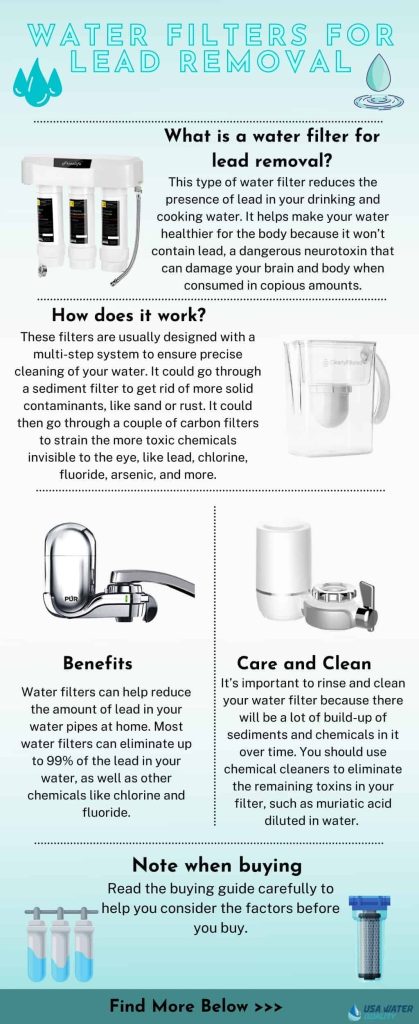

This image is property of www.usawaterquality.org.
What is lead and why is it harmful?
Definition of lead
Lead is a highly toxic metal that is commonly found in our environment. It can enter our bodies through various sources, such as air, dust, soil, and water. Lead has no known beneficial function in our bodies and even small amounts of exposure can be harmful.
Sources of lead contamination
Lead contamination can occur through both natural and man-made sources. Natural sources include rocks and soil that contain lead, while man-made sources include lead-based paints, industrial emissions, and old lead water pipes or plumbing fixtures. Lead can also contaminate water sources through corrosion of plumbing systems or through the use of lead solder.
Health effects of lead
Lead exposure can lead to serious health problems, especially in children and pregnant women. In children, lead exposure can cause developmental delays, learning disabilities, and lower IQ. In adults, it can contribute to cardiovascular problems, kidney damage, and reproductive issues. It is crucial to minimize lead exposure to protect our health.
Understanding water filters
Types of water filters
There are various types of water filters available in the market, each with its own strengths and limitations. Some common types include activated carbon filters, reverse osmosis filters, distillation filters, and gravity-fed filters.
How water filters work
Water filters work by removing impurities and contaminants from the water, improving its quality and safety for consumption. Different types of filters use different mechanisms, such as physical filtration, adsorption, absorption, and chemical reactions, to trap or neutralize contaminants.
Filtration methods used by water filters
Water filters utilize different filtration methods to remove contaminants, including lead, from the water. Common methods include mechanical filtration, where physical barriers capture particles, adsorption, where contaminants adhere to the filter media, and ion exchange, where ions are exchanged for contaminants.
Ability of water filters to remove lead
Certified lead removal claims
Water filters that are specifically designed to remove lead will often have certifications or claims stating their effectiveness. Look for labels such as “NSF/ANSI 53 certified for lead removal” or “verified by EPA for lead reduction” to ensure the filter has been tested and approved for lead removal.
Factors affecting lead removal
The effectiveness of a water filter in removing lead can be influenced by various factors, including the type and quality of the filter media, the flow rate of water through the filter, and the concentration of lead in the water. It is important to choose a filter that is suited for your specific needs and water conditions.
Limitations of water filters in removing lead
While water filters can be effective in reducing lead levels, it is important to note that no filter is 100% effective in removing all lead. Some filters may be better at removing certain types of lead contaminants than others. Additionally, filters can become less effective over time if not properly maintained or if the filter media becomes saturated.
Effective water filters for lead removal
Reverse osmosis water filters
Reverse osmosis filters are considered one of the most effective methods for removing lead from water. They use a semi-permeable membrane to remove a wide range of contaminants, including lead. These filters typically have multiple stages of filtration and can remove up to 99% of lead from drinking water.
Activated carbon filters
Activated carbon filters are commonly used in water filter systems as they are effective in removing impurities, including lead. They work by adsorbing contaminants onto the surface of the carbon filter media. However, the effectiveness of activated carbon filters in lead removal can vary depending on the specific filter design and the concentration of lead in the water.
Distillation filters
Distillation filters work by boiling water and collecting the vapor, leaving behind impurities and contaminants, including lead. Distillation is an effective method for lead removal, as the boiling process separates the water molecules from contaminants. However, distillation filters can be slow and may require additional energy to operate.
Gravity-fed filters
Gravity-fed filters, such as ceramic or activated carbon filters, rely on gravity to pull the water through the filter media. These filters are often portable and can be used in areas without access to electricity. While their effectiveness in lead removal may vary, they can be a cost-effective option for removing a wide range of contaminants.
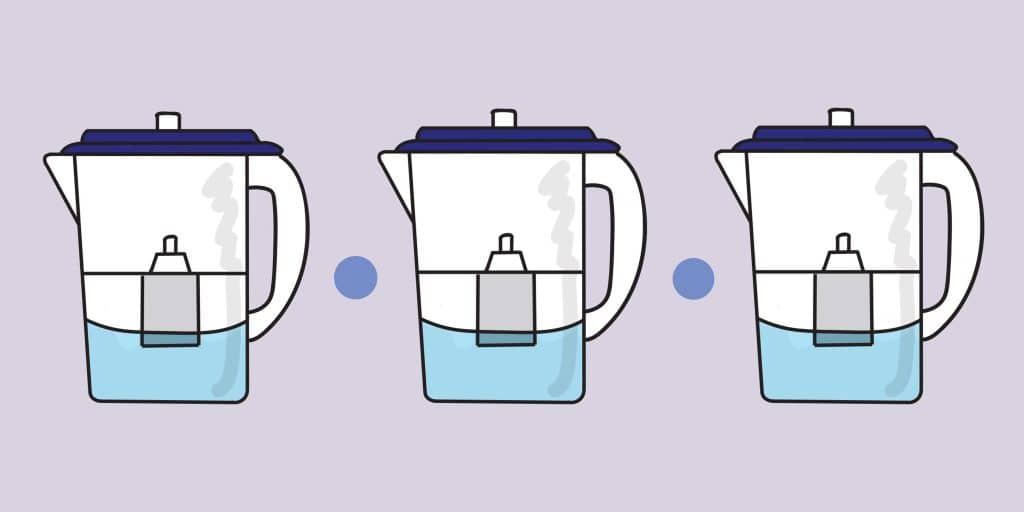

This image is property of fourteeneastmag.com.
Case studies and research
Studies on lead removal efficiency
Numerous studies have been conducted to evaluate the effectiveness of water filters in lead removal. These studies have shown that certain types of filters, such as reverse osmosis and activated carbon filters, can significantly reduce lead levels in drinking water. It is important to review and consider the findings of these studies when choosing a water filter.
Comparison of different water filters
Comparative studies have also been conducted to assess the effectiveness of different water filters in lead removal. These studies often evaluate factors such as lead reduction capabilities, flow rates, filter lifespan, and cost. It is helpful to review these comparisons to determine which filter best meets your specific needs and requirements.
Long-term effectiveness of water filters
It is important to understand that the effectiveness of water filters in lead removal can decrease over time. Factors such as filter saturation, deteriorating filter media, and poor maintenance can impact the filter’s ability to remove lead. Regular filter replacement and proper maintenance are essential to ensure long-term effectiveness.
Installation and maintenance considerations
Proper installation of water filters
Correct installation of water filters is crucial for their optimal performance. Follow the manufacturer’s instructions closely and ensure proper placement, connection, and sealing of the filter unit. If you are unsure about the installation process, consider hiring a professional to ensure it is done correctly.
Replacing filter cartridges
Most water filters require regular replacement of filter cartridges to maintain their effectiveness. The frequency of replacement depends on the specific filter and water usage. Follow the manufacturer’s recommendations for cartridge replacement and be aware of any signs that may indicate a need for early replacement, such as a decrease in water flow or a change in taste or odor.
Maintenance and lifespan of water filters
Regular maintenance is important to keep water filters functioning at their best. This may include cleaning filter components, sanitizing the filter, and monitoring filter performance. Additionally, be aware of the expected lifespan of your water filter and plan for replacement accordingly. Neglecting maintenance can lead to decreased performance and potentially compromised water quality.
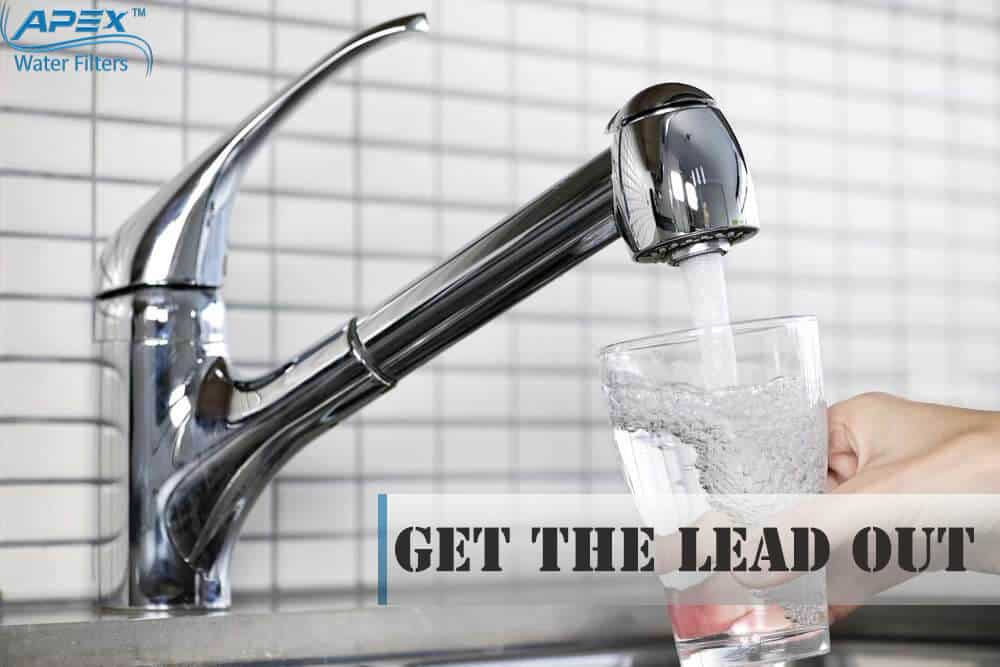

This image is property of apexwaterfilters.com.
Additional water treatment methods
Water testing for lead
Water testing is a crucial step in determining the presence and levels of lead in your drinking water. There are testing kits available that allow you to collect a sample of water and send it to a laboratory for analysis. Regular testing is recommended to ensure ongoing lead removal effectiveness and to detect any potential issues with your water supply.
Water softening and conditioning
Water softeners and conditioners are commonly used to address hard water issues caused by high levels of minerals. While they may improve the taste and texture of water, they are not specifically designed to remove lead. It is important to use water filters or other lead removal methods in conjunction with water softeners or conditioners for comprehensive water treatment.
Combining filtration methods for better lead removal
In some cases, combining multiple filtration methods can enhance lead removal capabilities. For example, using a reverse osmosis system in combination with an activated carbon filter can provide a more thorough removal of lead and other contaminants. Consider consulting with water treatment professionals to determine the best combination of filtration methods for your specific needs.
Regulations and certifications
EPA regulations on lead in drinking water
The Environmental Protection Agency (EPA) sets standards and regulations for the safe levels of contaminants, including lead, in drinking water. These regulations help protect public health and guide utilities in providing safe drinking water. It is important to be aware of these regulations and to ensure that your water filter complies with the EPA standards for lead removal.
NSF/ANSI standards and certifications
The NSF/ANSI standards are widely recognized certifications for water treatment products, including water filters. The NSF/ANSI 53 standard specifically addresses the performance of water filters in reducing lead content. Look for filters that are certified to this standard to ensure their effectiveness in lead removal.
Water filter certification labels
Water filters that have been tested and certified for lead removal often display certification labels on their packaging or product information. These labels provide assurance that the filter has undergone independent testing and meets specific standards for lead removal. Look for labels such as NSF/ANSI 53, NSF P473, or EPA verification to ensure the filter’s effectiveness.
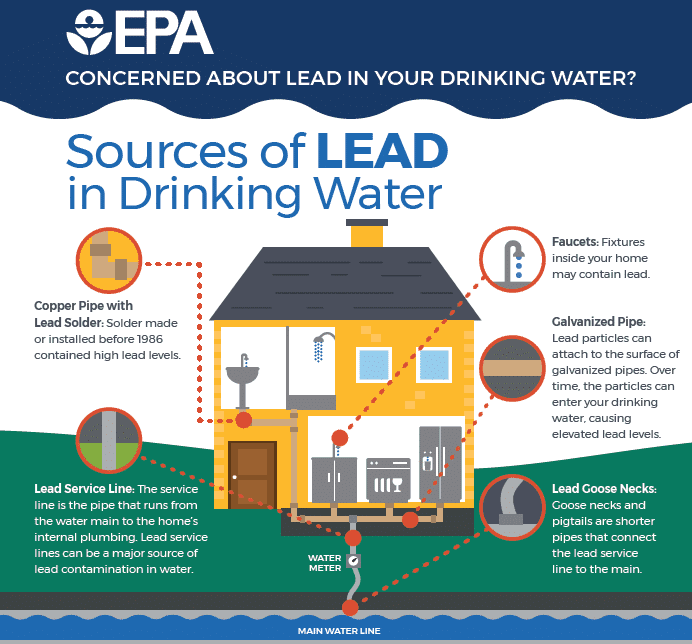

This image is property of cdn10.bigcommerce.com.
Importance of regular water testing
Testing for lead presence
Regular water testing is crucial to identify the presence of lead in your drinking water. This is especially important if you live in an older home with lead pipes or if you suspect your water source may be contaminated. Testing can help you assess the effectiveness of your water filter and identify any potential issues with your water supply.
Frequency of water testing
The frequency of water testing depends on various factors, such as the age of your plumbing system, the quality of your water source, and any changes in taste or appearance of your water. It is recommended to test your water at least annually, or more frequently if there are any concerns or changes in your water quality.
Signs and symptoms of lead exposure
Lead exposure can have serious health consequences, so it is important to be aware of the signs and symptoms associated with lead poisoning. These can include abdominal pain, headaches, fatigue, irritability, memory loss, and learning difficulties in children. If you or your family members experience any of these symptoms, consult a healthcare professional and consider testing your drinking water for lead.
Conclusion
Lead contamination in drinking water can have severe health implications, especially for children and pregnant women. Using effective water filters is a proactive measure to reduce the risk of lead exposure, but it is important to choose filters that are specifically designed and certified for lead removal. Regular water testing, proper maintenance, and adherence to regulations and certifications are key to ensuring the effectiveness of water filters in removing lead and safeguarding your health and well-being.
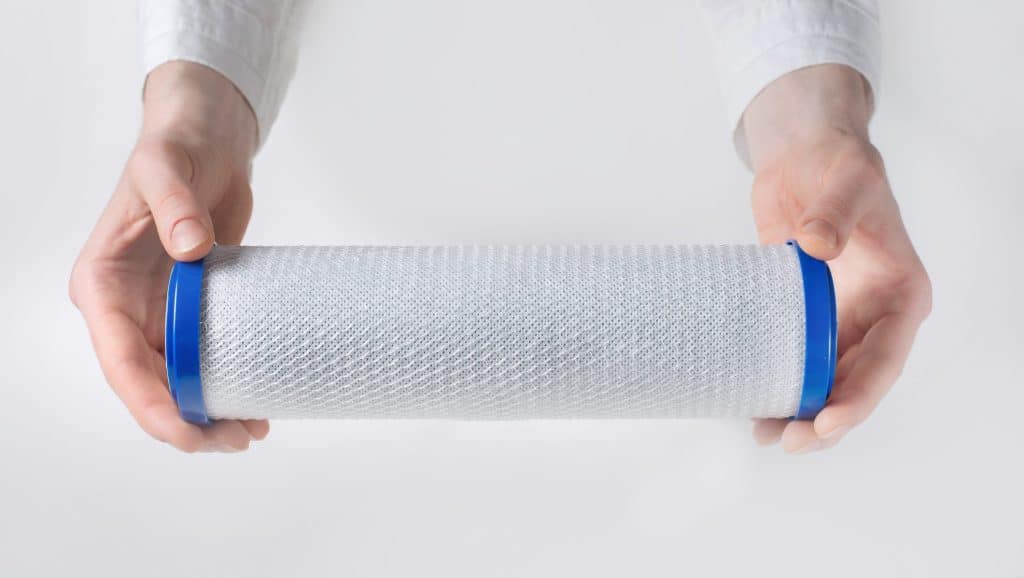

This image is property of www.usatoday.com.

